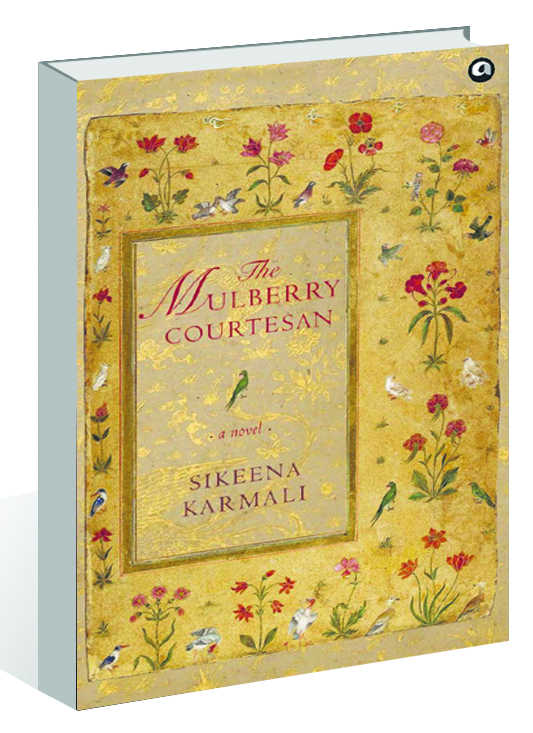
The Mulberry Courtesan by Sikeena Karmali. Aleph. Pages 262. Rs 399
Vikrant Parmar
Adversity, persistent and relentless, breaks down the strongest of souls; those unbroken stand out as epitomes of human spirit and valour. Something exemplified by Laale Badakhshan, protagonist of Sikeena Karmali’s novel The Mulberry Courtesan.
From the ‘cosy domesticity within the four walls of her father’s lavish house’ in Afghanistan, she is sucked into a destiny that is worse than a nightmare. Laale is abducted by a rogue sepoy of the East India Company and raped brutally in the barren terrains of the hostile land. She manages to take her revenge and escape, only to be caught and later ignominiously sold in the slave market. However, her fate takes a turn for the better as the Nawab of Jhajjar buys her with an aim to present Laale to the Mughal emperor, Bahadur Shah Zafar, who is ‘in the autumn of his life’.
Learning verses from the great poet Mirza Ghalib and elegance from Begum Taj Mahal, she eventually becomes a charming courtesan — there is something ‘quite intriguing about Laale, something intangible, difficult to name, a kind of luminosity as if she was lit up from within’.
The emperor, old, infirm and broken in the wake of marauding British forces, which have reduced him to a veritable prisoner at Delhi’s Lal Qila, takes an immediate liking to Laale, which soon transmutes into intense love. Laale even exposes some conspiracies against the 81-year-old emperor, which further cements their bond.
The pathos of their situation is beautifully captured and juxtaposed by the author; two souls, much in love with Ghalib’s poetry, come together by a stroke of destiny, and bury their angst in verses that soothe their soul, embalm their flailing senses and offer a refuge from their impending fate. The only difference is that Laale’s ‘life force’ — a term coined by the great English author George Bernard Shaw — forever propels her forward, notwithstanding the cruel buffets of fate.
The great mutiny of 1857 ensues and Laale is torn asunder in the aftermath. She is captured by an English officer, savagely raped once again and literally incarcerated. In between all this, Laale develops a hobby to pen words in missives that remain close to her heart: ‘I am not surrendering my Lord. I shall fight this fate’. That is precisely what she does — avenges her rape with a gunshot that is guided by the Almighty, disguises as an English woman, manages to meet the old emperor in prison, witness his trial and even find a shelter, away from all danger, for their son.
The author, Sikeena Karmali, has a gift with words, mastery with sentences and flow with paragraphs. Her language has a lyrical quality that is underlined by the generous verses she has showered throughout the narrative. Romance, tragedy, pathos, adventure and relentless will, the narrative has it all in admirable measure.
Adversity is sure beaten by some brave souls… like Laale.



























